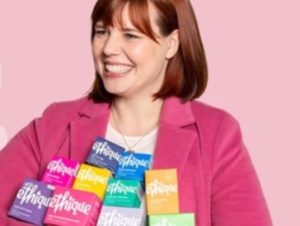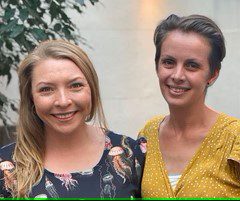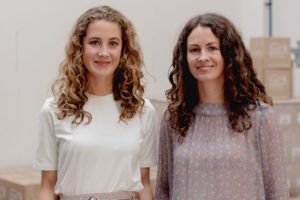Kiwis don’t want their pensions to trash the planet (like, duh)
Guess what, here’s a news flash that isn’t really a news flash. Turns out that New Zealand investors want to do well and do good with their money, a new study has found.
Finally! The lie we’ve been sold about how we can only drive profit through suffering, extraction, and destruction is being unveiled as the insidious propaganda that it is.
It’s similar to the lie we’ve been sold about how businesses can only be ‘successful’ (ie profitable for shareholders) if they exploit in some way, be it pay low wages, belch greenhouse gases into the atmosphere, or pretend the plastic waste they create is unavoidable and not their problem.
It’s BS.
In truth, businesses that are a force for good in the world do better than those that aren’t. A Neilson study has found businesses with a demonstrated commitment to sustainability have grown by more than four per cent globally, as opposed to those without growing less than one per cent.
But we don’t get told this. Instead, we get told that we must accept there is a trade-off between ethical investing and earning good returns.
‘Oh no’, we are told. ‘I’m sorry but if you want your investment and pension funds to grow then you have to invest in companies that use slave and child labour, and that don’t pay fairly for resources, and that leave behind pollution… I know, it’s unfortunate but you have no choice if you want to have any money for your old age, you don’t want to be broke and homeless in your old age do you?…’
LIKE ATTRACTS LIKE
Because it’s actually the very opposite. Just as we create more scarcity and inequality by supporting scarcity and inequality; we also create more true prosperity and abundance for all by supporting true prosperity and abundance for all.
For decades, we’ve turned a blind eye to our investment funds and pension funds being used to support industries like oil, gas, weapons of war, deforestation, tobacco, and so on, because we were told we ‘had to’ if we wanted to have a healthy retirement pot.
Shock, horror. It’s a massive lie that has caused us to fund the very industries that are destroying the planetary ecosystems upon which our lives utterly depend. At best, this unpalatable truth is kept secret. I bet most Kiwis have no idea that $68 million of our collective KiwiSaver funds and investment funds are invested in companies driving deforestation.
At last, more people are no longer falling for it and no longer standing for it, according to a new report by both Mindful Money and the Responsible Investment Association Australasia (RIAA).
The research found that almost three quarters of New Zealanders (74%) expect their investments to be managed ethically and responsibly. The number of people willing to move their funds if the investments do not align with their values has increased to 59% (+4%).
And despite this being a time where we have high levels of financial uncertainty and volatility, not only is consumer demand for ethical investing gain momentum but there is growing interest in investing for positive impact.
GROWING DEMAND FOR POSITIVE IMPACT
One of the most significant findings from this survey is the increase in consumer interest in investing for positive impact, both through dedicated funds and within mainstream ethical and responsible funds.
A growing number of New Zealanders understand that investment has real world impacts, including on issues such as climate change, and they are interested in funds that can demonstrate positive impacts.
Consumers want to know what types of companies are in their portfolios, and they are more likely to choose ethical and responsible funds that have independent certification.
The survey also shows that consumers don’t believe the old myths of a trade-off between ethical investing and earning good returns. 45% expect ethical and responsible investments to perform better in the long term (up by 5% from 2022) while 45% see the relationship as neutral.
This is consistent with a large and growing evidence base, including for Australian and New Zealand investment funds, using comparative returns between ethical/responsible funds and traditional funds.
Any business that cannot make money without exploiting in some way, shape or form is a failure. A lazy, short-sighted and egregious failure and, finally, as a society we’re beginning to see that and we are demanding that the business sector pull its socks up.
Kia kaha
Tamara
Are you Ready to B Better?
Ready to take the plunge towards becoming a B Corp business? Let the Grow Good team guide you through the process either through 1:1 coaching or group coaching on one of our regular cohort programmes. Book a 30-min discovery call with Tamara here.



 It all started because Laura and Steph were on a mission to create the best dog treats humanly possible.
It all started because Laura and Steph were on a mission to create the best dog treats humanly possible.

